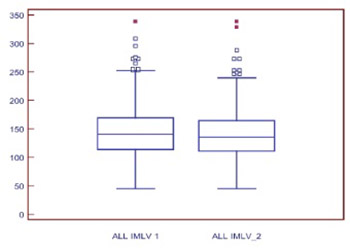Effects of Fixed Combination of Lisinopril Plus Hydrochlorothiazide on Regression of Left Ventricular Hypertrophy in Patients With Essential Hypertension: An Opened, Multi-Centre, Prospective Clinical Trial
DOI:
https://doi.org/10.17305/bjbms.2008.2920Keywords:
lisinopril, hydrochlorothiazide, left ventricular hypertrophy, hypertension, clinical trialAbstract
The aim of this trial was to examine the effects of antihypertensive fixed combination of lisinopril plus hydrochlorothiazide (Lopril H, Bosnalijek dd, Bosnia and Herzegovina) on regression of left ventricular hypertrophy in patients with essential arterial hypertension. We included 297 patients in our trial, aged 54,65±9,6 years, with treated or untreated hypertension and with high risk of cardiac events, in an opened trial of therapy based on lisinopril plus hydrochlorothiazide. Patients from five European countries were followed up for a period of 12 weeks. Duration of treatment was 12 weeks. We adjusted daily doses of lisinopril plus hydrochlorothiazide after every clinical examination and recorded adverse effects of drugs.
In the beginning and after 12 weeks of treatment, 277 patients (93,2%) underwent 2-dimensional echocardiography and there were 186 patients evaluated for efficacy of treatment on left ventricular hypertrophy (LVH). We recorded a regression of index mass LVH (168,56 vs 161,51 g/m2, P<0,0001), and regression was something more in women vs men.
We recorded average reduction of left ventricular mass index for patients with LVH (N=186) by 7,05 g/m2 (4,18%) in all patients, by 6,73 g/m2 (3,93%) in men and 7,27 g/m2 (4,37%) in women. The proportion of patients who attained a regression of left ventricular mass tended to be greater in men (54,55% vs 53,21%).
This research has proved regression of LVH in more than 53% patients after using fixed combination of lisinopril plus hydrochlorothiazide.
Citations
Downloads

Downloads
Published
Issue
Section
Categories
How to Cite
Accepted 2018-01-03
Published 2008-08-20









